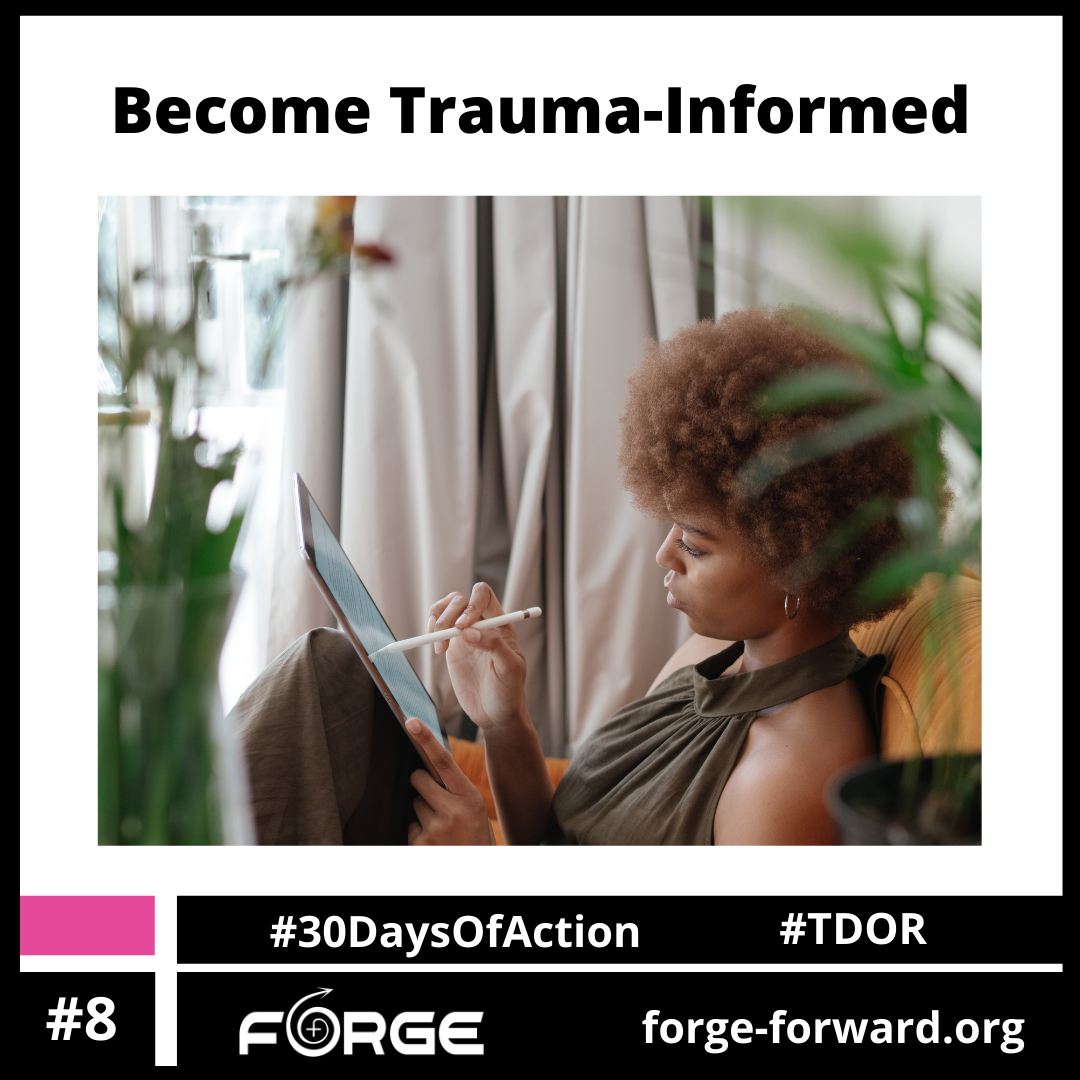It’s been quite a year. There were massive political divisions and conflicts. COVID-19, of course, cost many families their loved ones, while others are still dealing with long-term COVID aftermaths. A quarter of U.S. adults reported that they or someone in their household was laid off or lost their job due to the pandemic. Many of new jobless, of course, also lost their health insurance. Even more wealth was sucked from most Americans into the pocketbooks of a very few billionaires. Black Lives Matter made huge strides, and also gaped open centuries-old wounds. If police violence didn’t get worse, it certainly became more visible to many more people. People throughout the country were forced to choose: get into the streets to protest the many atrocities, or follow health care advice to shelter at home and protect their health.
In addition to all of these collective traumas — many of them “novel” – nearly all of us bring personal histories of trauma. That is particularly true of transgender and non-binary individuals, who experience disproportionate rates of violence, discrimination, and trauma.
All of that trauma makes it even more critical for people to understand just how far trauma’s tendrils extend into the lifespan. The Adverse Childhood Experiences (ACE) study found that traumatic events in childhood were absolutely and strongly linked to mid- and late-life physical as well as mental health problems, including premature death. FORGE believes that trans and non-binary children and youth are exposed to additional, population-specific ACEs that may help explain our many health disparities. FORGE has outlined those additional risks in our white paper, Supporting LGBTQ Youth is Violence Prevention.
There are many practical implications of being trauma-informed. The most important, however, is shifting the mindset that asks, “What’s wrong with you?” to one that asks, “What happened to you?” Given what we’ve all lived through in 2020, that switch may make more sense than ever before.
P.S. A good way to help alleviate trauma is to support an organization that is trauma-informed. #GivingTuesday is December 1.
#30DaysOfAction #30DaysOfTransAction #TDOR #TDOR2020 #Trans #NonBinary #Trauma #TraumaInformedCare #TraumaInformed #SupportTransYouth #ACE #Prevention #ReachingVictims

